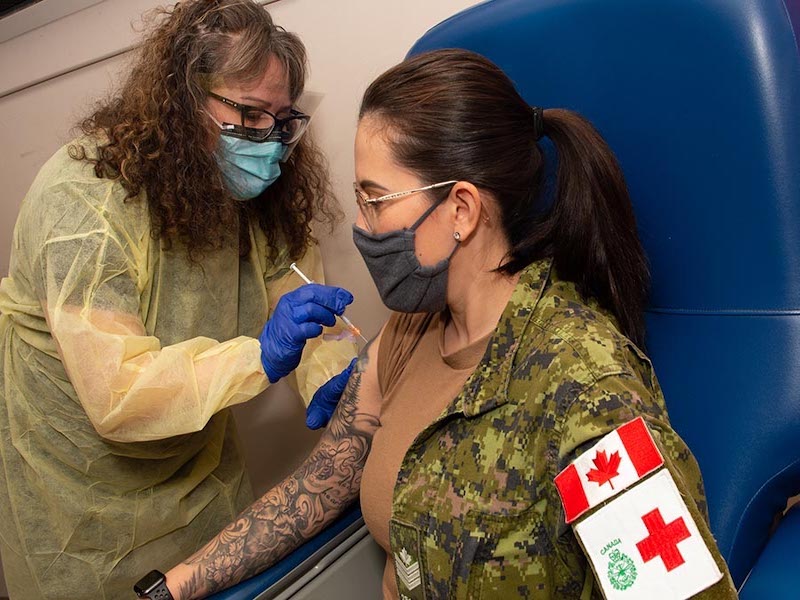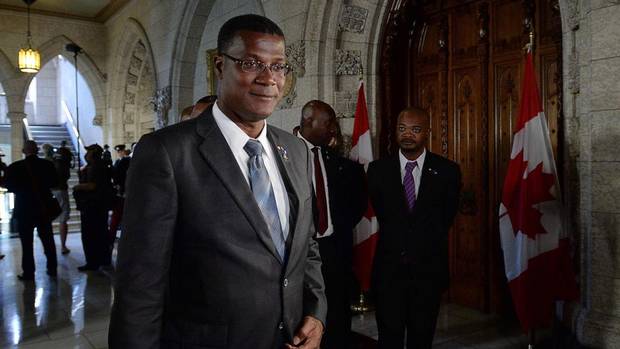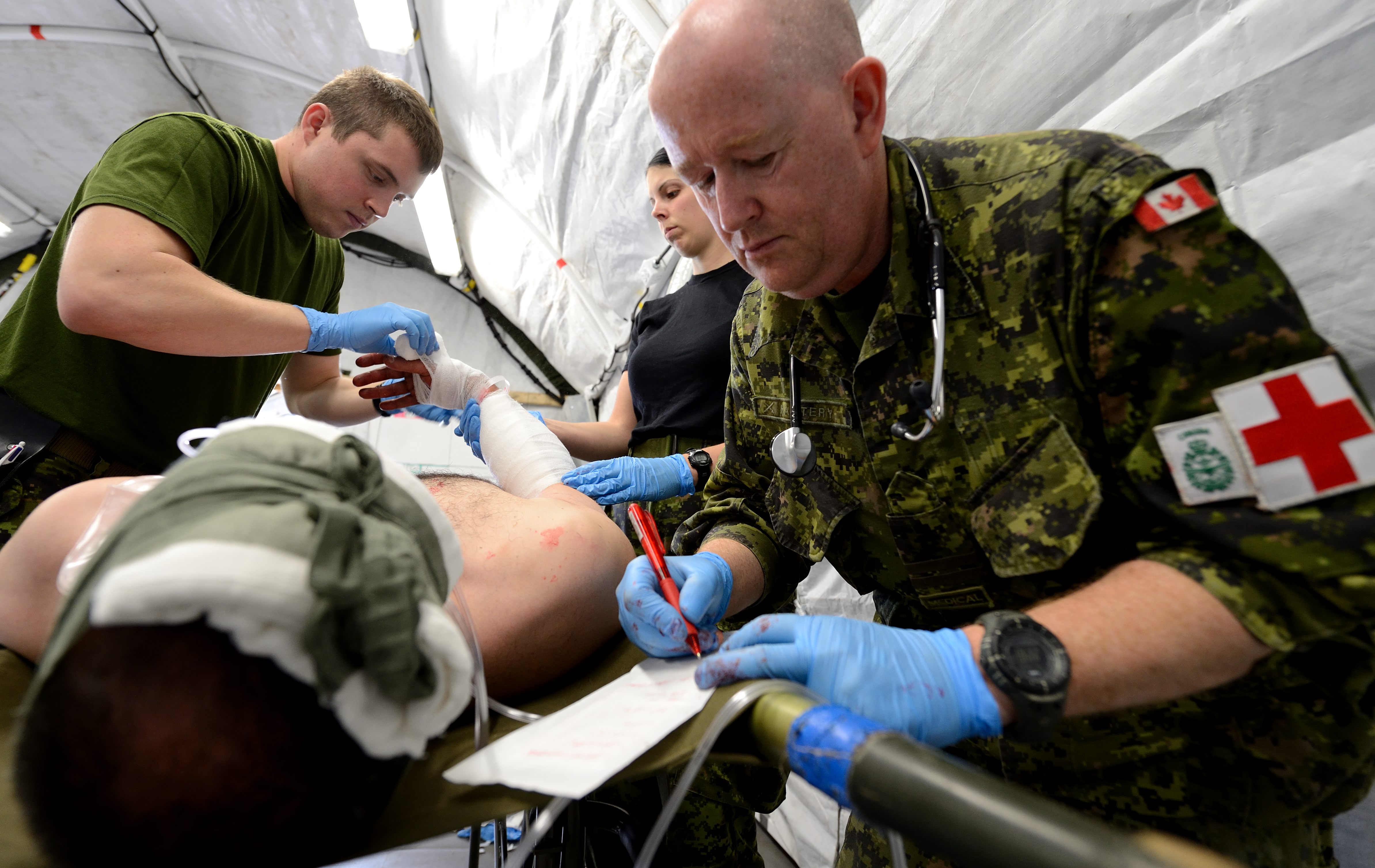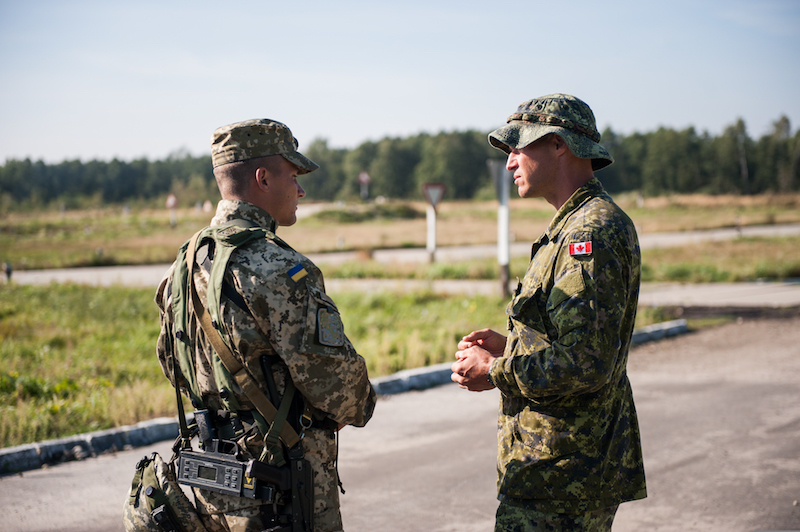With the growing reach of social media and communication technologies, misinformation and disinformation have become so prevalent that it can now be difficult to discern between what is true and false. While “misinformation” refers to false information, “disinformation” denotes the deliberate propagation of false claims. One of the most recent disinformation crises to grip society was centered around COVID-19 vaccines, which persists today.
Mis- and disinformation regarding the COVID-19 vaccine resulted in an estimated 2,800 deaths in Canada alone between March and November of 2021, as well as $300 million in hospital expenses. In the Canadian Armed Forces (CAF), vaccine disinformation took an interesting turn. A mandatory vaccine policy for all CAF members was implemented in October 2021. What the Chief of Defence Staff (CDS) was unaware of was just how much this policy would enable more disinformation, and the controversy that would follow it in the coming years.
The CDS directive required all current and prospective members of the armed forces to have at least two doses of the COVID-19 vaccine in order to continue to perform their military duties. Members had to comply with the mandate or otherwise face being potentially released from the military, meaning those who could not get vaccinated for valid medical or personal reasons were faced with a heavy decision. As a result, 299 members were ejected from the CAF as of October 2022. Another 108 members voluntarily stepped down from their military duties.
As of April 2022, more than 1,300 CAF members applied for an exemption from the mandate, but only 158 of these applications were approved. This angered many who alleged that the mandate violated CAF members’ constitutional rights. It also provided fodder for those disseminating disinformation. One example of this is a Facebook video that began circulating on September 15 of this year. It falsely claimed that 3,000 to 5,000 members of the CAF had been released due to adverse effects from the required vaccines.
The video featured an excerpt of a statement made by Catherine Christensen, a military lawyer. Christensen had, in fact, only been estimating the number of CAF members voluntarily leaving due to the vaccine mandate overall, not due to vaccine injury. Christensen had been basing this estimate on conversations she had had with various CAF members herself. But she was filing a class-action lawsuit against the Canadian defense minister over the CAF’s abuse of power “at the expense of the members of the CAF and the former members of the CAF.” The vaccine mandate was the main basis for this lawsuit, and it provided material for bad actors interested in exploiting the case in order to spread disinformation and confusion.
This lawsuit is just one example of an ongoing debate over the vaccine mandate’s validity. This question of ethics and rights was investigated by the Military Grievances External Review Committee. The concerns of the mandate’s detractors were given credence when the investigation confirmed that the vaccine policy was “unconstitutional and therefore invalid.” The investigation found that the mandate violated Section 7 of the Canadian Charter of Rights and Freedoms, guaranteeing that “Everyone has the right to life, liberty and security of the person and the right not to be deprived thereof except in accordance with the principles of fundamental justice.”
A policy that was seemingly implemented for the greater goal of global health security unfortunately came with its own unwanted side effects. Due to the vaccine mandates, as well as a general dissatisfaction with military culture, the CAF is now faced with lawsuits, as well as a staffing crisis, where 10,000 positions in the military remain unfilled. The long-term threat to the integrity of the CAF that this precendent poses is undeniable, and begs the question of how health policies can be better implemented.
Discerning between vaccine hesitancy stemming from outright disinformation and what was based on valid conscientious reasons could, perhaps, have obviated these legal controversies. The CAF already required legal documentation to confirm a medical or personal contraindiction preventing full vaccination. More funding and time alloted to educating the CAF ranks about the safety and efficacy of the vaccine may have prompted more reluctant personnel to forgo this route. Although the Government of Canada had launched a Public Health Campaign with general information about the COVID-19 vaccine and addressing misconceptions, the campaign only lasted from March 8th to May 16th of 2021, prior to the mandate being implemented in October. Extending the campaign to the CAF along with the vaccine mandate may have served to combat vaccine hesitancy arising from mis- and disinformation.
Alternatively, the CDS could have also been more lenient with granting vaccine exemptions to those who genuinely wanted them. Forcing the mandate onto hesitant personnel might have produced more of a “backfire effect,” pushing those who were already skeptical to become even more determined to refuse vaccination. Had the CDS made exemptions more attainable, perhaps personnel may have accepted the mandate more readily as their free-will decision, feeling less threatened by it. Even those dismissed may not have felt the need to sue after the fact. In hindsight, the damage done by inadvertently providing ammunition for disinformation, lawsuits, and negative publicity by imposing the mandate upon those who were unwilling probably outweighed whatever damage would have been caused by allowing a few more CAF members to bow out of vaccination.
Together, these two approaches might have prevented accelerationists – those pushing for chaos to uproot social order – from propagating more vaccine hesitancy, for example, through the Facebook video, by capitalizing on the emotional uproar caused by implementing the vaccine mandate.
Although the Chief of the World Health Organization declared that the COVID-19 pandemic was no longer a global health emergency in May of 2023, he urged countries to remain vigilant for future pandemics and health security threats. In the case of future health emergencies and policies, focusing on educating the population on the use of novel medical technologies could help to mitigate mis- and disinformation, as well as increase cooperation with the associated policies. This is of paramount importance in defence circles.
Photo: “2 Field Ambulance Medical Technician, Sergeant Kelita Shubert receives her COVID-19 vaccination at Garrison Petawawa on Thursday January 7, 2021” (2021) by Aviator Lanny Jellicoe via Flickr. Photo courtesy of the Canadian Forces Combat Camera, Department of National Defence.




